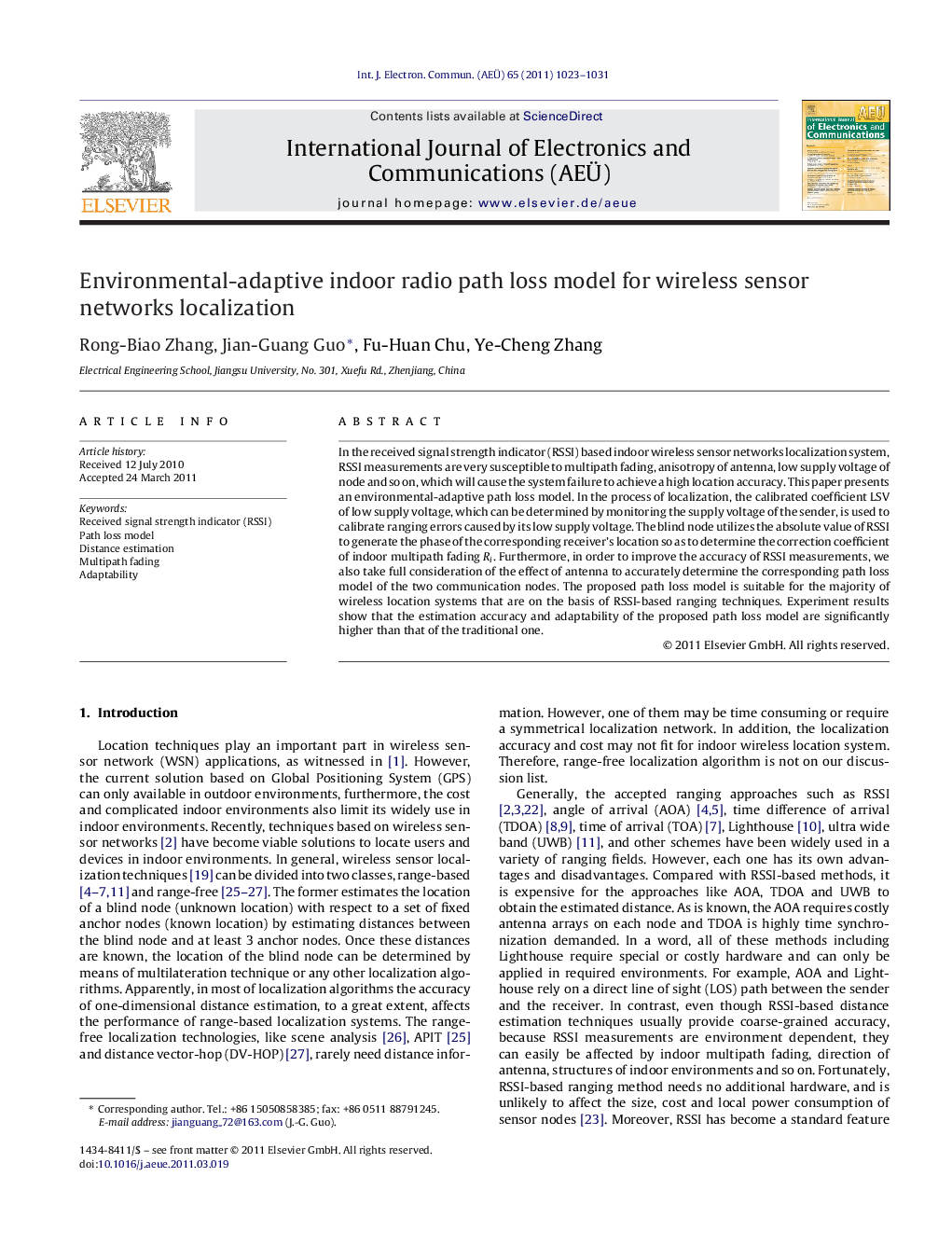| Article ID | Journal | Published Year | Pages | File Type |
|---|---|---|---|---|
| 447729 | AEU - International Journal of Electronics and Communications | 2011 | 9 Pages |
In the received signal strength indicator (RSSI) based indoor wireless sensor networks localization system, RSSI measurements are very susceptible to multipath fading, anisotropy of antenna, low supply voltage of node and so on, which will cause the system failure to achieve a high location accuracy. This paper presents an environmental-adaptive path loss model. In the process of localization, the calibrated coefficient LSV of low supply voltage, which can be determined by monitoring the supply voltage of the sender, is used to calibrate ranging errors caused by its low supply voltage. The blind node utilizes the absolute value of RSSI to generate the phase of the corresponding receiver's location so as to determine the correction coefficient of indoor multipath fading Ri. Furthermore, in order to improve the accuracy of RSSI measurements, we also take full consideration of the effect of antenna to accurately determine the corresponding path loss model of the two communication nodes. The proposed path loss model is suitable for the majority of wireless location systems that are on the basis of RSSI-based ranging techniques. Experiment results show that the estimation accuracy and adaptability of the proposed path loss model are significantly higher than that of the traditional one.
